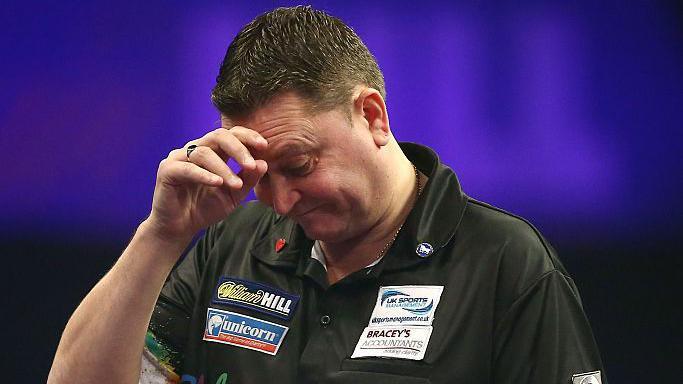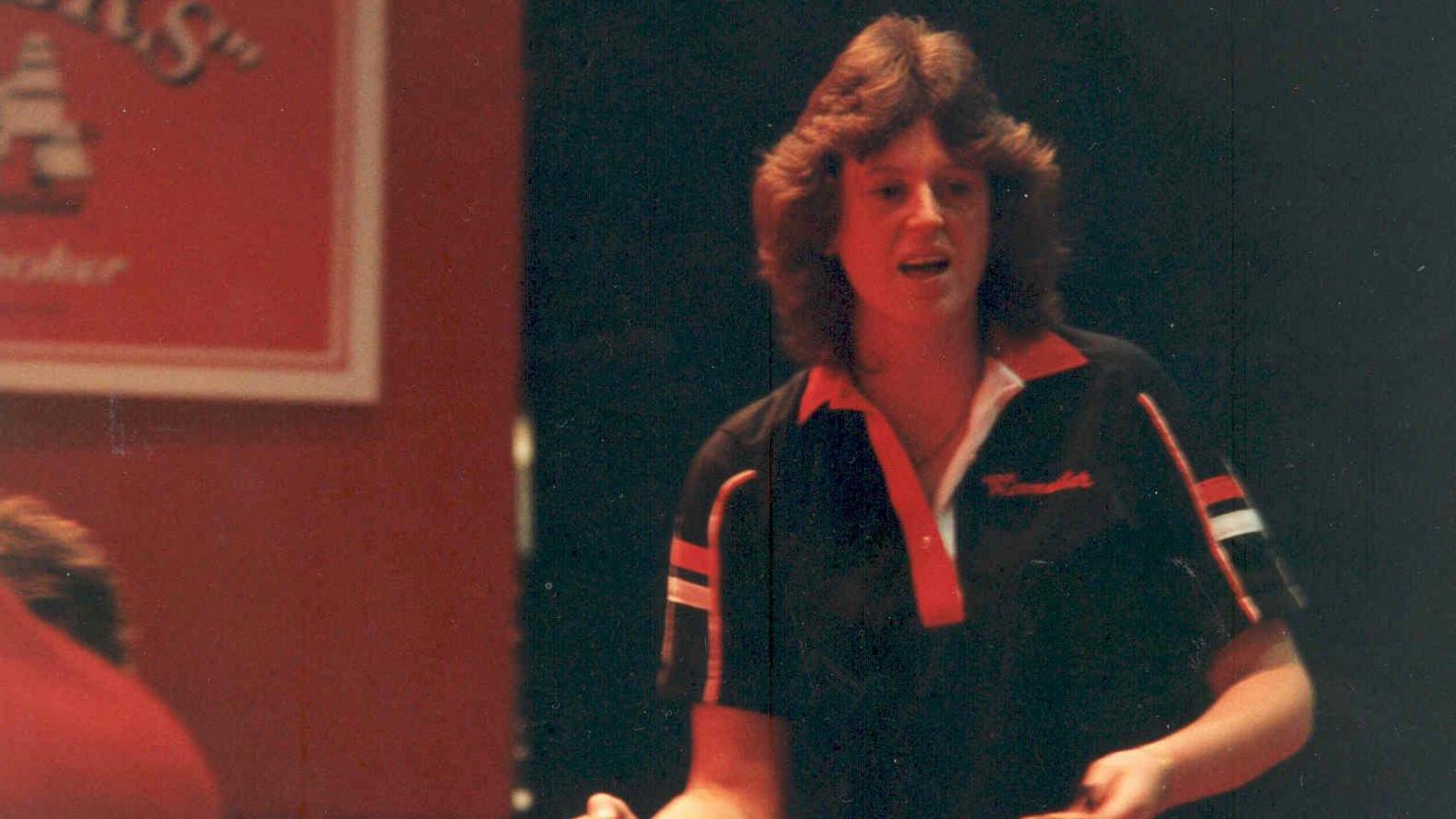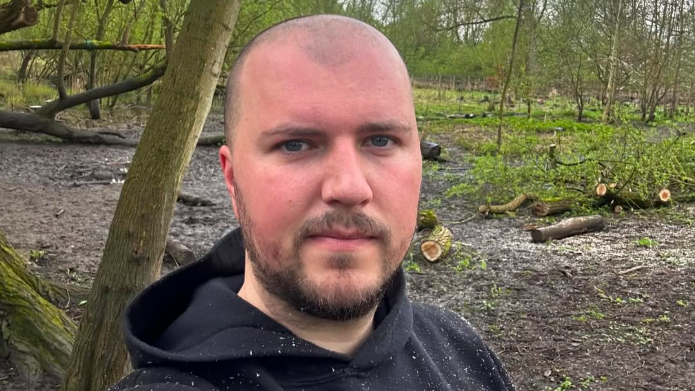Dartitis: The condition where you try to throw a dart - but can't

Former darts champion Kevin Painter suffers from Dartitis
- Published
Former professional darts champion Kevin Painter has thrown arrows almost every day for 40 years.
Throughout his career he thrived under pressure, playing in the most prestigious competitions and taking home more than £900,000 in prize money.
But earlier this year, he went to throw a dart and it physically would not leave his hand.
"You're in shock, I stood there for ages. I just couldn't get my arm up to let go of the dart," he said.
Kevin was suffering from dartitis, a mental condition where the brain stops a player from being able to release a dart.
Finding a cure would become the 57-year-old's latest challenge.
"[Dartitis is] in the absence of any physical trauma, it's purely psychological," said Dr Linda Duffy, professor of psychology at Middlesex University.
From 1982 to 1987 she was ranked women's world number one and also experienced dartitis.
"I used to combat it with extra practice. It was heard of back in the day, but not many people spoke about it," she said.
Dartitis can affect all players, professional or amateur.
Jack Langston, a darts referee and online content creator, was 12 when he first experienced the condition.
"There was a little pause just before I threw the dart," he said.
It was barely noticeable at first but eventually it became so bad he would take 60 seconds to throw three darts.
By the age of 13, he was forced to quit and at the time, considered his darts career to be over.
"You're turning up and getting beat by people you know you should be beating," he said.
"It's so demoralising. It's a real mental struggle."
Jack Langston has documented his experience with dartitis on social media
Every case is different, and there is no one single cause, but lots of players report it comes from a fear of missing.
"It's brought on by anxiety and stress," Kevin said.
"Where others have panic attacks, for me it manifested as dartitis."
Dr Duffy says that - perhaps due to its name - players have a tendency to view dartitis as a problem unique to the sport which therefore demands unique solutions.
"It's just another cognitive disorder, so it should be treated that way," she says. "The underlying mechanisms that cause dartitis are the same things that cause any other anxiety disorder."
She recommends cognitive behavioural therapy (CBT) to enable the player to reframe dartitis as a challenge they need to overcome.
Kevin has been trying to conquer the condition with hypnotherapy - and CBT - taking sessions with Chris O'Connor whose company Eccleston Park Hypnotherapy is the official "hypnotherapy partner" of the Professional Darts Players Association (PDPA).
During his sessions, the patient lies on a sofa and is guided into a trance where they are then "hit with all the confidence work and the motivation work", Mr O'Connor said.
"It's all about getting them to visualise an area of their life they want to improve."
After eight sessions, it seemed Kevin's dartitis had been cured for good. But two weeks later, during a televised match at the World Senior Darts tour, the condition returned. "I was really, really disappointed," he said. "I thought it had gone."
He's now back working with Mr O'Connor on cracking the disorder long term.

Dr Linda Duffy was ranked women's world number one from 1982 to 1987
The therapy Mr O'Connor offers is tailored for each person he treats, using a mixture of Solution Focused Brief Therapy, hypnosis and visualization techniques to eliminate dartitis, he said.
Mr O'Connor said: "It's results-based, with clients often noticing changes after just a few sessions.
"I work with four world champions across UFC, darts, and snooker, and seven elite PDC darts players in the world top 30. So far, I have helped over 50 clients eliminate dartitis in the last two years."
Unlike Kevin, Jack has managed to shake his dartitis and with lasting results.
In January, the 31-year-old decided to start throwing with his left hand.
"[It was] the biggest decision of my entire life playing darts," he said.
But it worked, and within three months he was winning matches at amateur tournaments.
Alongside his better performances, Jack found another benefit - he no longer needed to drink alcohol to play.
"I used to shake if I didn't have a beer I'd be so nervous," he said.
"If you'd have told me a year ago I'd play darts sober, I wouldn't have believed you."

Jack Langston knew his dartitis would stop him from going professional
In another bid to aid his recovery, Kevin has also started to drink less.
Despite there being no established link between drinking and dartitis, it's a sign of his determination to try everything to kick the condition.
"It's no secret everyone likes a drink when they play," he said.
"But you have to put the effort [into the treatment]. I like to go for a walk in the mornings to clear my head."
"Everyone's been very supportive," he said.
"I've spoken to so many people who have it or have had it. I wouldn't have had those conversations if I didn't get dartitis."